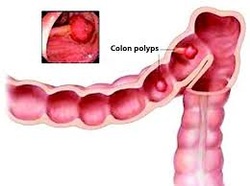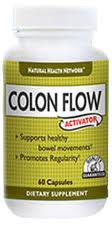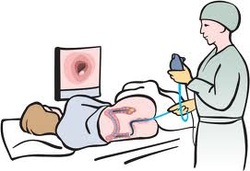
Colon Polyps - What are they?
A polyp is further tissue which starts off as a small bump in the lining then later grow to appear to be a mushroom. Colonic polyps develop in the massive gut. The large gut, also called the colon, is a protracted hollow tube at the end of your digestive tract the place your body makes and stores stool. Colonic polyps are not essentially dangerous. So much are benign, this means that they aren't cancerous. However through the years, a few types of polyps can increase cancerous cells. On a regular basis, polyps which are smaller than a pea aren't harmful. However better polyps may in the end grow to be cancer or might already be cancerous. To be protected, Gastroenterologists get rid of all polyps and check them.
Anyone can boost polyps; however certain people are much more likely than others. You could have a better likelihood of creating polyps if: you're over 50 (The older you are, the much more likely you're to develop polyps)
Why do polyps form?
Although most polyps aren't most cancerous, they're the result of unusual cell phone growth like cancer. Polyps can enhance anyplace in the large intestine. There are three major forms of colon polyps:
Adenomatous: This type of polyp grows beyond the dimensions of a pencil eraser, about ¼ inch; there's an expanding likelihood that they will turn into cancerous. That is why doctors normally take a tissue pattern, known as a biopsy, from polyps all the way through a sigmoidoscopy examination. If a colonoscopy is being carried out, the polyp may also be biopsied or removed right through the process.
Hyperplastic: This type of polyp occurs so much incessantly in the descending (left) colon and rectum. They’re regularly not up to 5 mm in dimension and infrequently malignant (cancerous).
Inflammatory: These polyps would possibly follow a bout of ulcerative colitis or Crohn’s disease. They’re usually no longer bad, but having ulcerative colitis or Crohn’s illness can increase your possibility of colon cancers.
Symptoms:
Most small polyps don't lead to signs. Regularly, other folks don't understand they have one until the doctor unearths it right through a typical take a look at up or whilst trying them out for something else.
But some other folks do have signs like these:
Diagnosis:
Gastroenterologists can use numerous exams to test for polyps:
Digital rectal examination: The doctor wears gloves and tests your decrease rectum for polyps.
Barium enema: The physician puts liquid barium to your rectum, sooner than taking an x-ray of your huge gut. Barium makes your intestine glance white within the photos. Polyps are darkish, so that they're easy to identify.
Sigmoidoscopy: this is an older technique however is from time to time used where the physician can see throughout the decrease massive gut while the patient is underneath sedation. The doctor places a thin flexible tube into the rectum. The tool is known as an endoscope, which is equipped with a gentle and a miniature video digital camera. Gastroenterologists utilize the endoscope to have a look at the ultimate third of the large gut.
Colonoscopy: This check is very similar to sigmoidoscopy, but permits the doctor to have a look at all the large unchecking the use of an endoscope. This process requires sedation.
Treatment:
The most efficient remedy for polyps is their removal. Gastroenterologists do away with polyps all the way through colonoscopy, and then have the tissue pathologically examined for any presence of most cancers. Once a person has had a polyp got rid of a standard re-colonoscopy exam is required to cut back the danger of polyp recurrence and cancer formation.
A polyp is further tissue which starts off as a small bump in the lining then later grow to appear to be a mushroom. Colonic polyps develop in the massive gut. The large gut, also called the colon, is a protracted hollow tube at the end of your digestive tract the place your body makes and stores stool. Colonic polyps are not essentially dangerous. So much are benign, this means that they aren't cancerous. However through the years, a few types of polyps can increase cancerous cells. On a regular basis, polyps which are smaller than a pea aren't harmful. However better polyps may in the end grow to be cancer or might already be cancerous. To be protected, Gastroenterologists get rid of all polyps and check them.
Anyone can boost polyps; however certain people are much more likely than others. You could have a better likelihood of creating polyps if: you're over 50 (The older you are, the much more likely you're to develop polyps)
- Any individual in your family has had polyps
- Devour numerous fatty meals
- You additionally may be much more likely to enhance polyps in the event you
- You've had polyps earlier than
- Any individual in your family has had cancer of the large gut
- Drink alcohol
- Smoke
- Weigh too much
- Don’t exercise
Why do polyps form?
Although most polyps aren't most cancerous, they're the result of unusual cell phone growth like cancer. Polyps can enhance anyplace in the large intestine. There are three major forms of colon polyps:
Adenomatous: This type of polyp grows beyond the dimensions of a pencil eraser, about ¼ inch; there's an expanding likelihood that they will turn into cancerous. That is why doctors normally take a tissue pattern, known as a biopsy, from polyps all the way through a sigmoidoscopy examination. If a colonoscopy is being carried out, the polyp may also be biopsied or removed right through the process.
Hyperplastic: This type of polyp occurs so much incessantly in the descending (left) colon and rectum. They’re regularly not up to 5 mm in dimension and infrequently malignant (cancerous).
Inflammatory: These polyps would possibly follow a bout of ulcerative colitis or Crohn’s disease. They’re usually no longer bad, but having ulcerative colitis or Crohn’s illness can increase your possibility of colon cancers.
Symptoms:
Most small polyps don't lead to signs. Regularly, other folks don't understand they have one until the doctor unearths it right through a typical take a look at up or whilst trying them out for something else.
But some other folks do have signs like these:
- Anal bleeding (you might realize blood in your undies or on bathroom paper after you've had a bowel movement).
- Diarrhea or constipation that lasts more than a week
- Blood in the stool (Blood can make stool glance black, or it may possibly display up as red streaks within the stool)
- If you could have any of these signs, see your doctor to determine what the problem is, as you may want to be mentioned a Gastroenterologist.
Diagnosis:
Gastroenterologists can use numerous exams to test for polyps:
Digital rectal examination: The doctor wears gloves and tests your decrease rectum for polyps.
Barium enema: The physician puts liquid barium to your rectum, sooner than taking an x-ray of your huge gut. Barium makes your intestine glance white within the photos. Polyps are darkish, so that they're easy to identify.
Sigmoidoscopy: this is an older technique however is from time to time used where the physician can see throughout the decrease massive gut while the patient is underneath sedation. The doctor places a thin flexible tube into the rectum. The tool is known as an endoscope, which is equipped with a gentle and a miniature video digital camera. Gastroenterologists utilize the endoscope to have a look at the ultimate third of the large gut.
Colonoscopy: This check is very similar to sigmoidoscopy, but permits the doctor to have a look at all the large unchecking the use of an endoscope. This process requires sedation.
Treatment:
The most efficient remedy for polyps is their removal. Gastroenterologists do away with polyps all the way through colonoscopy, and then have the tissue pathologically examined for any presence of most cancers. Once a person has had a polyp got rid of a standard re-colonoscopy exam is required to cut back the danger of polyp recurrence and cancer formation.


 RSS Feed
RSS Feed